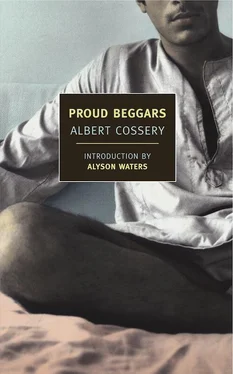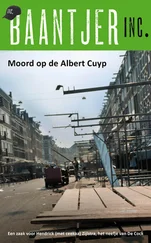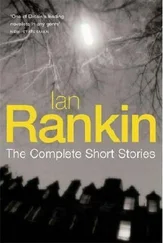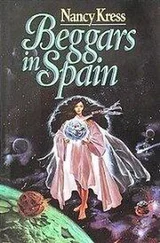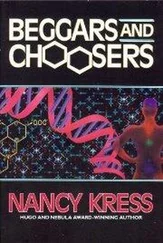Suddenly he felt someone looking at him. He opened his eyes and saw he was not mistaken. Someone was observing him insistently, someone whose face itself was an omen of misfortune. A one-eyed man was seated next to the door, almost facing him and sneakily spying on him. What especially disturbed El Kordi was that he sensed himself being watched by the man’s bad eye, as if the good eye remained neutral and even showed a sort of lenience toward him.
Implacably, ferociously, the man went on staring at him with his haunting good eye. But El Kordi saw only the bad eye, so that their gazes never met. This delicate situation lasted a long time. El Kordi wondered what the man wanted and if he had ever seen him before. He grew irritated trying to place the man and doing his utmost to understand his provocative attitude. The impossibility of moving to escape this inquisition finally roused him to indignant fury. He wasn’t going to take it lying down. “I’m going to spit in his face. Then we’ll see if he continues to look at me like that.” But fear of provoking a scandal just when he was preparing to commit an audacious theft and needed all his composure prevented him from going to this extreme. He swallowed his saliva.
The streetcar stopped at a station, started again, and suddenly the ticket-taker’s head appeared in the doorway. Impossible to say by what clever maneuver he had managed this coup.
“Who doesn’t have tickets?” he called.
No one deigned to answer this question. The ticket-taker, a skinny individual with a pale face and a shopworn uniform, became insolent and threatened to stop the streetcar. Trapped, the passengers grudgingly took out their money and paid their fare, as if they were giving alms to the ticket-taker. Only the one-eyed man didn’t move; he was still staring at El Kordi with his single, implacable eye.
Impatient, the ticket-taker addressed him directly.
“Hey, mister!”
“Secret police,” the one-eyed man answered drily without turning his head.
El Kordi thought that the streetcar was tipping over, and that all the passengers had stood up in one defensive movement. Actually, he was the only person standing. He had a moment’s panic, then rushed for the door, jumped from the moving streetcar, and began to run toward the nearest sidewalk. When he finally stopped to catch his breath, the streetcar had long ago disappeared in the distance like a dissipating nightmare. Again, El Kordi felt the violent shock he had experienced hearing the one-eyed man state his identity. What a frightful trap he had just escaped! He blessed the luck that had favored him with such a stupid policeman. To reveal who he was like that so as not to pay for his seat! What a dolt! But why were the police tailing him? Certainly not because of the jewelry robbery he was planning. No one was aware of his decision. The police couldn’t read people’s minds. If they were watching him, it was obviously for another purpose. It did not take El Kordi long to figure this out. The police were no longer unaware of the fact that he was a revolutionary; he himself had made that pederast inspector understand this during his interrogation in the brothel. Seen from this angle, the one-eyed man’s tailing became a large-scale operation mounted by the oppressors of the people in order to assassinate him. El Kordi breathed proudly and smiled; a kind of prodigious drunkenness filled his head. Finally he was a real revolutionary, pursued by the police, worrying those in high places. Gohar would no longer make fun of him, as he usually did, when he learned what horrible surveillance El Kordi had suffered.
He turned around several times to see if he was being followed, but there was no sign of the one-eyed man anywhere.
Avenue Fouad opened onto the center of the European quarter like a river of lights. El Kordi strolled along the avenue with the disturbing sensation of being in a strange city. In vain did he tell himself he was still in his native country; he could not believe it. All these busy men, who looked as though they had just come from some catastrophe and whose sullen faces expressed mediocre preoccupations, seemed singularly hostile. He found the attitude of the crowd to be morbid and exaggerated: nothing was happening to break its agonizing monotony. Something was lacking in this noisy throng: the humorous details by which human nature could be recognized. This crowd was inhuman. The anguish spreading from it passed imperceptibly into El Kordi and made him yearn for the popular quarter. He already missed the muddy streets and dirty hovels where a banished people mocked their oppressors. There was more hope in the tin shacks of the slums than in this opulent city. Was this, then, that fantastic city where the relentless enemies of the people lived, lurking in their inviolable hideouts? The citadel of oppression was not a happy place. The riches displayed in store windows, the dull majesty of the buildings, the rectilinear rigor of the sidewalks — all this seemed to forbid the least-frivolous thought. El Kordi now understood why Gohar had abandoned this city and its sad comfort.
The sight of a little newspaper vendor shook him out of his melancholy; he had recovered his world.
“Hey, little one! Do you have the Greek newspaper?”
“Do you read Greek, sir?”
“Yes. Why wouldn’t I read Greek?”
“By Allah, you see everything in this country!”
El Kordi bought a copy of the only Greek paper in the city, folded it, and put it in his coat pocket. He had felt a burning need to indulge himself in this idiotic playacting. All the serious activity around him saddened him like a blow inflicted on a naturally happy people. He had wanted to escape a little from this almost palpable anguish, which became ever more intense as he advanced along this thoroughfare lit as if for a grandiose funeral procession. But the pleasure of having amazed a little newspaper boy did not make him forget his project. “Enough joking. It’s time to act.” He was near his goal; a few yards now separated him from the jewelry store.
What was the word that he had read somewhere that seemed to possess such seductive power? Expropriation . The word came back to him with an aura of glorious conviction. It was not a robbery that he was going to commit, but an expropriation. This thought calmed the apprehensions of a novice thief, although it did not change any of the difficulties of his undertaking: the difficulties were still the same, but the new point of view created a fundamental difference. He was no longer a simple hoodlum indulging in his first larceny. Thus, El Kordi remained faithful to his revolutionary ideal. His first attempt now seemed like the start of an era of rebellion, of long and bloody battles, like the first spark of a fire that would die only with the liberation of the people.
The grandeur of his task moved him to tears.
He advanced resolutely toward the window of the jewelry store, as if driven by the clamor of a multitude of starving, oppressed people. He was now but the instrument of a people resolved to take revenge. He stopped, dumbfounded. As if in the water of an aquarium, the precious jewels sparkled in the harsh light, their strange reflections hypnotizing his gaze. El Kordi saw himself transported to the center of an incomparable fairy-tale world. The savage clamor of the unchained masses was silenced; he was alone, crushed by all this inaccessible splendor. Discouragement crashed down on him like a heavy stone. To steal — that was easy to say! But how? By what witchcraft was he going to appropriate one of these jewels, as far away as the most distant star in the sky? The bitterness he felt at his own naïveté brought tears to his eyes again. He remembered his sick mistress bound to a degrading existence in a lice-ridden brothel, waiting for him to come to her rescue. With misty eyes, he contemplated the shimmering treasures in the show window, thinking that with the price of just one of these jewels he could take Naila away from her ignoble destiny. His determination to save the young woman from prostitution and to assure her of a decent life was so strong and so real at this moment that he desperately tried to find a way to commit his theft. But the jewels remained extraordinarily inaccessible, seeming to belong to another universe. He painfully felt all his impotence, closed his fist, and slowly raised his arm to smash the window in one frenzied movement.
Читать дальше
